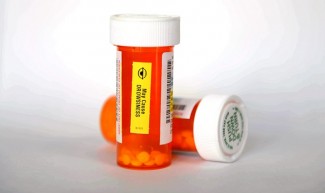Search
Effectiveness Bank Analysis: Make Patients Partners in Therapy
Research findings amalgamated for the American Psychological Association show that outcomes of psychosocial treatments are substantially improved when clients and therapists agree on goals and methods and form collaborative relationships...
Alcohol Consumption and Parenthood
People Who Don't Drink May Still Suffer Harms from Alcohol
The consumption of alcohol carries a risk of adverse health and social consequences related to its intoxicating, toxic and dependence-producing properties (WHO).
When assessing alcohol-related harm estimates primarily focus on the...
The Substance Use Intervention Team: A Preliminary Analysis of a Population-level Strategy to Address the Opioid Crisis at an Academic Health Center
Objective: In 2017, an academic health center in Chicago launched the multidisciplinary Substance Use Intervention Team (SUIT) to address opioid misuse across 18 inpatient units and in a new outpatient addiction medicine clinic. This report...
Immigration Status and Substance Use Disorder-Related Mortality in Sweden
Objectives: First-generation immigrants, in many countries, are healthier than their native counterparts. This study examined the association between first- and second-generation immigrant status and alcohol- or drugs other than alcohol...
Relevancia clínica de los receptores GABA-b en el tratamiento de la adicción a las drogas
Resumen
El ácido γ-aminobutírico (GABA) es el principal neurotransmisor inhibitorio del sistema nervioso central (SNC) de los mamíferos y ejerce su acción a partir de la activación de tres receptores distintos. El receptor GABAB es una...
Evaluating a Real World Ban on Menthol Cigarettes: An Interrupted Time Series Analysis of Sales
Abstract
Background
Menthol in cigarettes has been shown to increase regular cigarette smoking and nicotine dependence, and decrease success in smoking cessation. Due to these reasons, in May 2015, the Province of Ontario introduced a...
The Increased Trend of Non-drinking Alcohol Among Adolescents: What Role Do Internet Activities Have?
The Effects of Oxytocin on Withdrawal, Craving and Stress Response in Heroin-Dependent Patients
According to the World Drug Report opioids are the most harmful drug type, accounting for 70% of the adverse health impacts associated with drug use disorders worldwide. Treatment typically focusses on controlling withdrawal, preventing...
The Link Between Smoking and Cognitive Functioning in People with Psychosis
The tobacco epidemic is one of the biggest public health threats the world has ever faced, killing more than 7 million people a year (WHO).
People with psychosis are more likely to smoke compared to the general population and it is...
Implementation Science and Stigma Reduction Interventions in Low- and Middle-Income Countries
Abstract
Background
Interventions to alleviate stigma are demonstrating effectiveness across a range of conditions, though few move beyond the pilot phase, especially in low- and middle-income countries (LMICs). Implementation science...
Alcohol Industry CSR Organisations: What Can Their Twitter Activity Tell Us about Their Independence and Their Priorities? A Comparative Analysis
Abstract
There are concerns about the accuracy of the health information provided by alcohol industry (AI)-funded organisations and about their independence. We conducted a content analysis of the health information disseminated by AI...
Effectiveness Bank Analysis: Emotions Thought to Drive Effective Therapy
Research findings amalgamated for the American Psychological Association show that the outcomes of psychotherapy are substantially and significantly better the more the therapist or especially the client display emotional arousal during...
Hazardous Alcohol Use among Patients with Schizophrenia and Depression
Harmful alcohol use is known to increase the risk of alcohol dependence as well as physical conditions such as hypertension, cardiovascular disease, and cirrhosis.
Alcohol use disorder (AUD) is a common co-occurring disorder in people...
Assessing Prenatal Alcohol Exposure in a Study of Foetal Alcohol Spectrum Disorder
Foetal Alcohol Spectrum Disorder (FASD) is a diagnostic term used to describe physical, neurodevelopmental, and cognitive impairments that have occurred following exposure to alcohol during pregnancy. The diagnosis of FASD requires a...
Alcohol Use by Adolescents in Ghana
Harmful alcohol consumption during adolescence poses a major public health issue as it affects several aspects of young peoples’ health and wellbeing.
A recent study, published in the Journal of Mental Health and Prevention, has examined...
Alcohol Consumption Behaviours in the Immediate Aftermath of Earthquakes: Time Series Study
Abstract
Objectives: Earthquakes are a distressing natural phenomenon that can disrupt normal health-related behaviours. The aim of this study was to investigate changes in alcohol consumption behaviours in the immediate aftermath of...
Nightlife and Alcohol Consumption among Youths: The Botellón Phenomenon in Spain
Abstract
In this article, we approach the botellón phenomenon as a widespread nightlife activity among Spanish youths. Botellón consists of youths meeting up, primarily on weekend nights, in open-air public spaces to talk and consume the...
Utilization of Addiction Treatment among U.S. Adults with History of Incarceration and Substance Use Disorders
Abstract
Background
The high prevalence of substance use disorders (SUDs) among incarcerated adults in the U.S. is well-known, but there has been less examination of SUD treatment and rates of incarceration among the population of...
Share the Knowledge: ISSUP members can post in the Knowledge Share – Sign in or become a member


